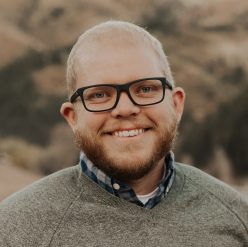My career is non-traditional. By non-traditional I mean that stating my job title does not give anyone the faintest idea of what I actually do (e.g., you say, “Engineer,” everyone gets it). As you can imagine, this has caused me some problems whenever people ask me what I do for a living. I’ve had to practice many 30-second explanations of what I do. Want some examples? Maybe some of you have heard one or two of these at one point:
- “I help make Firefox available to people all over the world.”
- “I help global volunteers produce a regionally appropriate version of Firefox for users in their countries.”
- “Have you heard of localization? It’s the process of taking a product and adapting it to meet the needs of consumers in a particular region of the world. I do that for Firefox.”
- “I drive a variety of projects that allow Firefox and other Mozilla products to be available in over 90 languages around the world.”
- “It’s my responsibility to make it easy for global volunteers to adapt Firefox to meet their local needs.”
While I think that these explanations, and other variations of them, are satisfactory, I still get questions like these:
- “So how many languages do you translate into?”
- “So you translate Firefox into Spanish?”
- “Mozilla has volunteers?”
- “What does ‘regionally appropriate’ mean?”
- “So when you say localization, you mean you translate mozilla stuff?”
For a long time now I’ve needed to come up with more than a one-liner to explain what I do for a living. Since I hope to have more posts on here about my work with Mozilla and localization, I figured I’d better explain, in a little more detail, what exactly I do here. (Also, side note, check out this picture at Mozilla HQ, it’s my favorite!)
Title: Localization Engineer
Company: Mozilla Corporation
Location: Provo, UT (i.e., I work from home, with frequent global travel)
What I do: There are a few things you have to understand before you can completely see where what I do fits.
First, Mozilla is a non-profit, open source project.
Second, Mozilla relies heavily on the contributions of a global community of volunteers. Our mission is to protect the open integrity of the web worldwide as well as its users around the world.
Third, localization (l10n) involves a whole lot more than just translating text. It’s about regionally adapting a product to such a degree that consumers assume that it was created in their region, not abroad. Thus for Mozilla, l10n involves text translation, non-Latin based language script support, understanding what search engines are most widely used in the region, ensuring that the application handles and displays text appropriately, making sure that dates, times, currency symbols, and images are all culturally appropriate for the region, and finally making sure that application inputs are regionally adapted (i.e., keyboard shortcuts, hotkeys, etc.).
Here’s where I fit in: generally speaking, it’s my responsibility to make it easy for the global community to take Firefox (or any other Mozilla product) and adapt it to their region’s needs. I do this by
- improving communications between Mozilla and the community,
- educating the community on l10n best practices and process,
- creating documentation, screencasts, slide decks, and other instructional materials on how to accomplish various l10n tasks,
- finding ways to improve our l10n process,
- and finding ways to motivate, recognize, and reward contributors for all of their work.
I have also made it my goal to bring Mozilla l10n out of obscurity and into a more prominent position within the l10n industry and ensure that we adhere to and drive development of l10n and translation standards.
Nearly every project that I’m working on falls into one or more of these areas. I get to travel the world meeting this global community, which is full of fascinating, hard working, and very motivated individuals.
Now that you know what I do for a living, there’s one final detail you need to know: I love my job!

